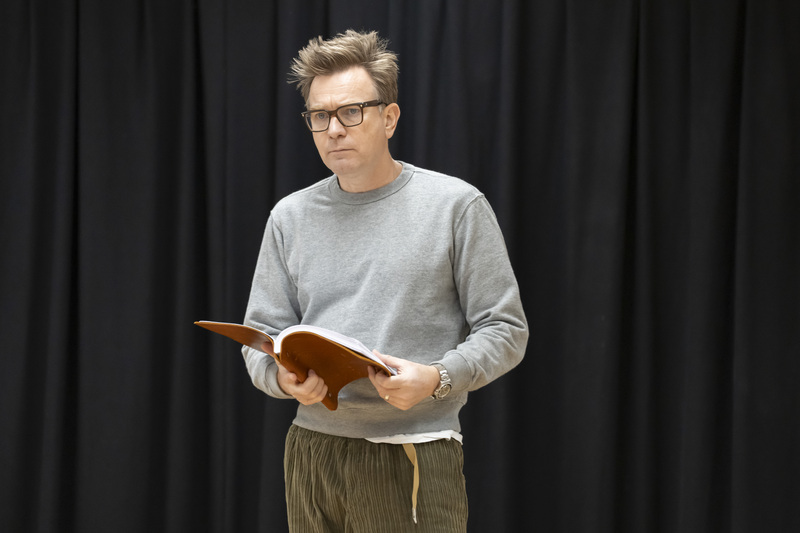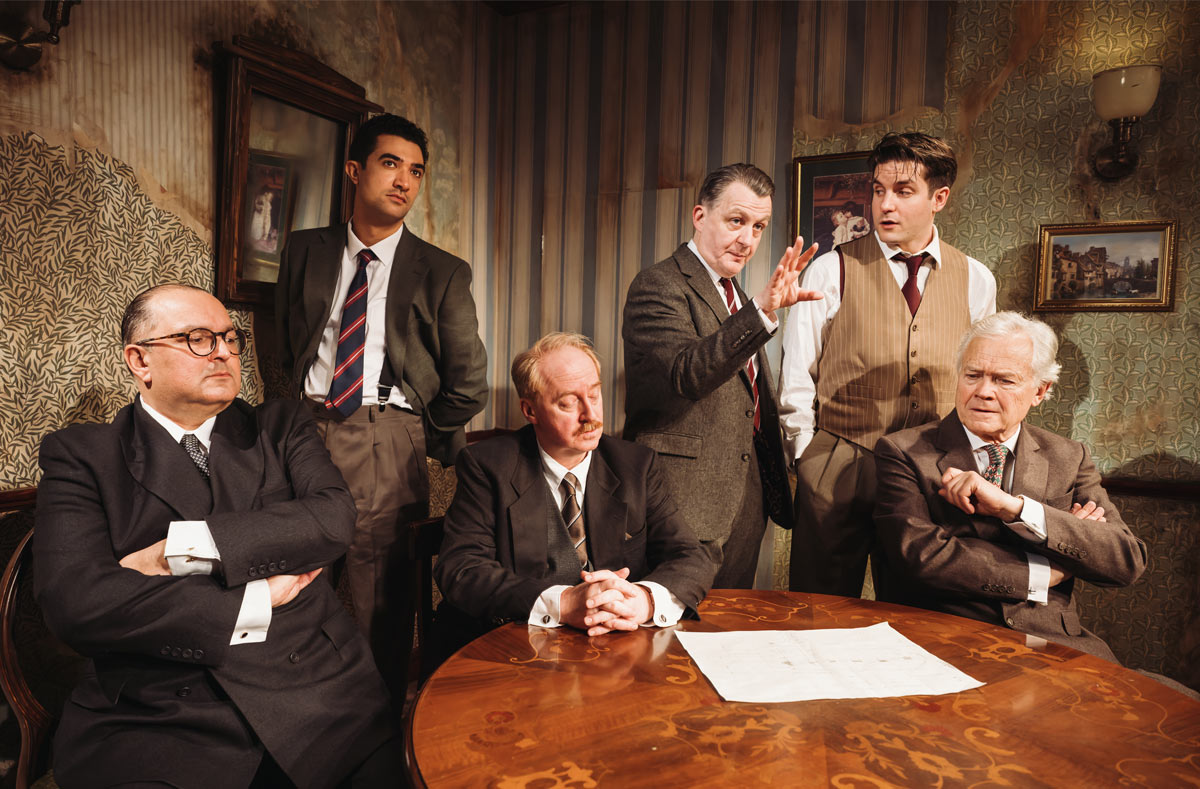In an unusual display of unity in the face of chaos, the three Romans had agreed to rule the Empire together in light of the deep unrest which followed the death of Julius Caesar and the subsequent defeat of his assassins at Philippi (covered comprehensively by WS six years earlier). Set in both Rome and at Alexandria in Egypt, the meeting of Mark Antony and Queen Cleopatra changed the course of empires and human history.
Shakespeare’s extraordinary capacity with words — both spoken, thought and felt, meant that he focused not only on the crowd-pleasing jingoism of historical battles, but the very real jealousies and miscommunications which caused them to come about. Antony and Cleopatra’s exhibition of such politically scandalous and foolish human behaviour, (given their status as world leaders) almost begs for the play to be set in the present! Oh that it were so for this traditional dress (but otherwise exhaustingly ham-fisted) version, which turns the great tragedy of ANTONY AND CLEOPATRA into a well-meant, but unintentional comedy.
For the Globe’s latest production director Blanche McIntyre and Associate Director Charlotte Arrowsmith attempt to substantiate and explain (or should that be justify?) their wish to present a bilingual production by positing that there would have been a clash of Roman and Egyptian cultures central to the story, requiring interpretation and translation. Here, performances and key characters are partly delivered in silence, through the medium of British sign language with the bard’s text presented on screens ranged around the wooden “O”. This reviewer found himself drifting remarkably early in the evening, wondering just how key words such as dislimns, augurers and spaniel’d would be relayed, but no matter… back to history and cultural differences.
It could certainly be argued that the militarily dominant and culturally ascendant Rome would have viewed the classically wealthy and ancient Egypt as more sexually liberal and promiscuous, even deviant. Their cultures would have differing preconceived notions about sex, sexuality and hierarchy. A woman monarch then, would have been viewed very differently than she would today. But whilst commendable, the rendering of whole scenes without spoken dialogue distracts so enormously from key moments in the story, that one spends the entire performance wondering where to look and yearning for scenes to ring true and make sense, which often they do not. Despite everyone’s best intentions and this reviewer’s acute awareness that any criticism of inclusion is instantly deemed taboo and discouraged, it is sometimes necessary to mention the elephant in the room.
Shakespeare’s Cleopatra is noteworthy for her fanciful outbursts and narcissistic attention seeking, but she is a Queen and the real woman was educated, reputedly of high intelligence and possessed of notable accomplishments. The exchanges between the monarch and her eunuch messenger Mardian (who lives in very physical fear of his life and needs to placate her anger), are rendered wholly slapstick and farcical. As such, High order in this solemnity is a cringeworthy line on which to end the production, but end it must, and for this reviewer it came not a moment too soon.

 Nadia Nadarajah as Cleopatra in Antony and Cleopatra at Shakespeare's Globe (c. Ellie Kurttz)
Nadia Nadarajah as Cleopatra in Antony and Cleopatra at Shakespeare's Globe (c. Ellie Kurttz)

